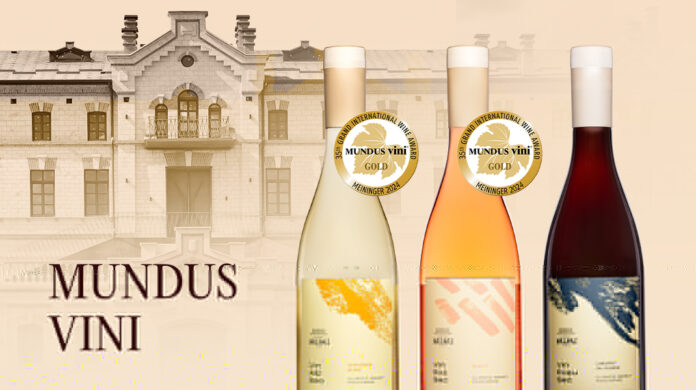Recently, Castel Mimi has been perhaps the leader in Moldova in implementing sustainability in business and environmental friendliness. It was the first winery in Moldova to use alternative bottling to glass bottles. The Climate Smart Packing wines have not yet reached the market but have already won gold medals at the prestigious MUNDUS VINI summer tasting 2024 in Germany, writes journalist Angelina Taran in her blog Wine and Spirits.
One of the powerful global trends in the wine industry is creating sustainability, including reducing the carbon footprint of wine. Experts estimate that the energy consumed in glass production and the transportation of bottled wine constitutes a significant portion—up to 40% — of the wine’s carbon footprint. If wine production and trade are to become sustainable, we need to think about alternative packaging. If the packaging is lightweight and recyclable, wine production and transportation can become more sustainable.
New alternative packaging options are becoming particularly popular in adult wine markets, which are called the innovators (the rest of the world is gradually pulling up, too). These include the Nordic countries, the UK, and Canada. Between 75% and 100% of merchants in these countries are willing to sell wines in new packaging alternatives in their stores.
FOR THE MOST IMPORTANT NEWS, FOLLOW US ON TWITTER!
This positive attitude stems from these countries’ long-standing national programs to reduce packaging waste. People there have a positive attitude towards sustainable development. In the Nordic countries and Canada, wine is distributed to consumers mainly by state monopolies. They are committed to reducing CO2 emissions. The listing, therefore, prioritizes wines in packaging with a low carbon footprint. Wines in alternative packaging, therefore, have a competitive advantage.
Amid these trends, Castel Mimi boldly and visionarily decided to comply by becoming the first winery in Moldova to bottle its wines in alternative containers instead of glass. They use high-quality PET bottles made in Sweden that resemble regular glass and feature Twist & Plopp + Long Cap seals.
The Climate Smart Packing series includes Sauvignon Blanc, 2023, Merlot Rose, 2023, and Cabernet Sauvignon, 2022. The first two wines won GOLD medals at the prestigious tasting competition in Germany – MUNDUS VINI summer tasting` 2024.
From a business and environmental point of view, alternative packaging brings great benefits. But what will consumers gain from it? Climate Smart Packing wines are very convenient to take outdoors because they are not heavy; they take up less space with a standard volume of 750 ml; there is no risk that the glass bottle will break (besides losing the wine, you can get hurt by the shards); the wine is easy to cool quickly, if you immerse the bottle in cold water or ice.
Read more details written by journalist Angelina Taran on wine-and-spirits.md (active link)
The president of the Sommelier Association of the Republic of Moldova, Mihai Druta, also tasted the three Castel Mimi wines from the Smart Packing Series. The standard taster analyzed both the PET bottles and the wines and congratulated Castel Mimi for this innovation in the Moldovan wine industry. Below are the sommelier’s comments on each wine:
Sauvignon Blanc “A clear, crystalline, brilliant color. A fresh aroma. A flavor that makes you taste this wine captivates you. An unusual flavor for pet bottles. The taste is fresh and light – Merlot Rosé 2023: “A wine with a pleasant, clear, bright color. The palate is pleasant and light, with a slightly sweet aftertaste. This wine pairs perfectly with salads and fish dishes.”
Cabernet Sauvignon 2022 “In the aroma, we smell very well blackcurrant, some spicy nuances, black pepper. And on the palate, it’s a full, balanced taste, it’s not very heavy”, says the sommelier.
You can find the Smart Packing series in the Castel Mimi shop. It will soon be available in retail. The winemaker has already exported the first batches to Romania and Norway and plans to bring them to Sweden, the Netherlands, Canada, and the United States.


